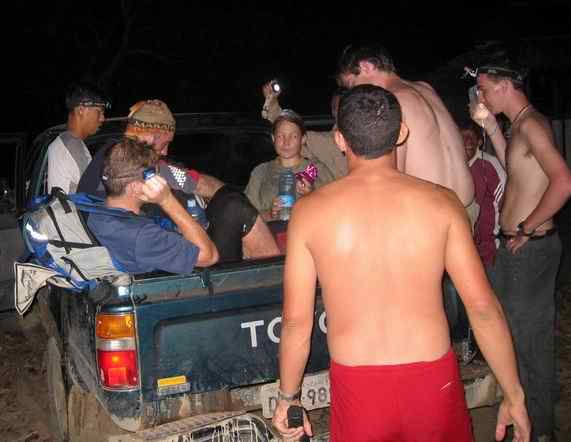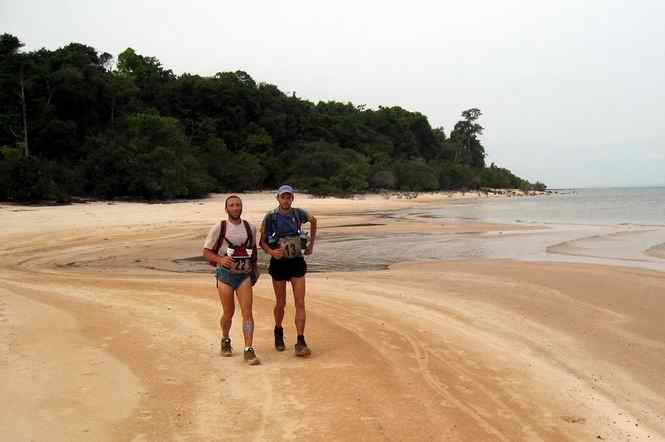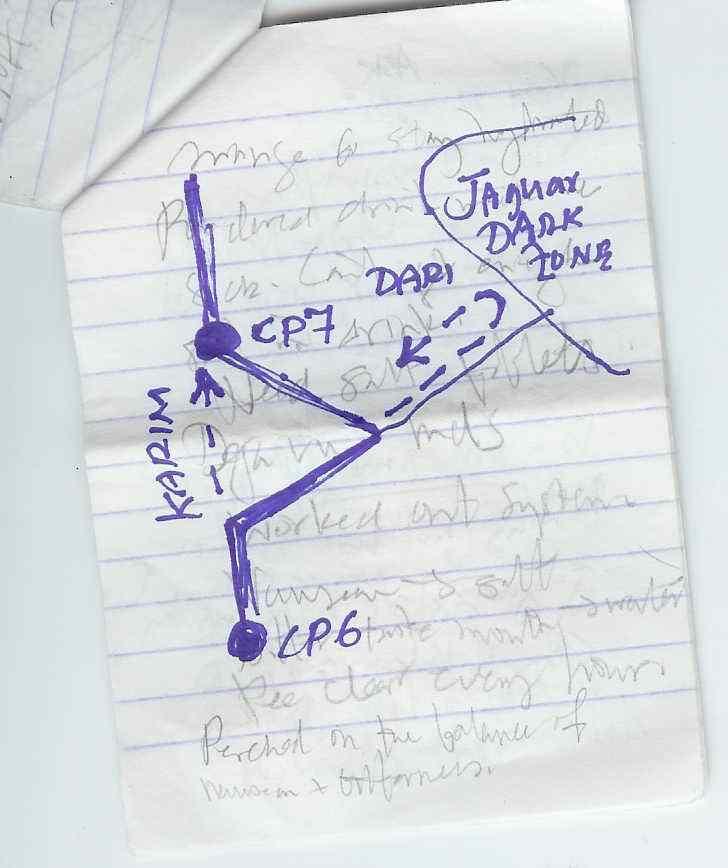Darkness descends on the last 40km of the 87km long stage. The trail is now marked with glowing stick lights. Unfortunately, the local village kids take a liking to these stick lights, and half of them disappear, making navigation challenging. I put on a headlamp and start scanning the trail for snakes, assuming that the course continues along this trail for quite some time.
I lose track of time and when I next look up, its pitch black and I’m knee-deep in mud on an isolated hilly trail in the middle of the jungle. I look around and see only insects flying into my headlamp and a few red eyes high up in the trees. I turn off the headlamp and look for stick lights. Nada. Shit! Am I lost or are there simply no stick lights? There is no one but me to answer that.
New blisters have formed due to the mud. My feet are throbbing with pain. My water bottles are almost empty. I am completely fatigued, having exerted myself for the last 16 hours, and my thoughts drift in and out of reality. Churchill’s famous quote rings in my mind over and over like a mantra: “When you’re going through hell, keep going… When you’re going through hell, keep going….” So onward through the mud I go.
A few minutes later, the headlights of three oncoming vehicles blind me. I step to the side of the trail to let the convoy pass. The jeeps stop when they reach me, and in the first car are two Brazilian soldiers, two competitors and one of the race organizers. “Get in,” she says. “You’re going the wrong way.”
I wasn’t sure if this was a dream. I remember rocking back and forth on the verge of passing out. My eyelids were heavy. I grab the door of the jeep for stability. “No I’m not,” I respond, in full denial. I try to smile as though everything is under control. “Besides…, when you’re going through hell…keep going…” I mumble like a drunkard.
“Right, but you’re going back into hell. You look dehydrated. Get in,” she says.
“Where am I?” I ask.
“Jaguarari,” snorts out one of the Brazilian soldiers, which is an aptly-named village we were warned has a high density of jaguars around it.
“Holy shit,” I think to myself, “I’ve been wandering alone for hours back inside the Dark Zone, and its bloody dark out!!” I look at the other two competitors picked up even farther out in the Dark Zone. They look like they’ve stared death in the face, so I get in the jeep.
I feel like I’m entering an alternative reality. Fatigue, dehydration and pain have dulled my senses. I leave the Dark Zone and enter the Twilight Zone.
We drive through the mud 6 km to CP7, picking up a dozen more sorry-looking competitors on the way in the three jeeps. The organizers decide it is too dangerous to let us continue with the trails so poorly marked. So we’re forced to spend the night at CP7.
Competitors in the jeep enroute to CP7.
I collapse into my hammock but can’t sleep due to the throbbing pain in my feet. Dawn arrives, but I am in no way rested from the night. The race clock is still ticking (in fact it wasn’t stopped even though we were forced to wait until dawn) and we have 20 km left to go. I put on my shoes, force myself to eat a handful of granola, and set off on the last beach-front stretch of this Road from Hell.


Sergio, from Spain, and me on the last 20 km beach section of the Road from Hell.
After being baked by unrelenting sun for 4 hours, I stumble into base camp at 11am, 30 hours after starting the stage with a brisk morning swim in the Tapajos River. That water crossing now seems like a distant memory.
In retrospect, it turns out that I missed a sharp left turn on the trail. I was so zoned out and only looking down at the ground with my headlamp, trying to avoid snakes and working my way through the mud, that I forgot to navigate. Robert’s words from last night’s briefing now echo in my mind: “Be careful und never loze attention. I vill make the course surprise you.” Surprise me he did.

